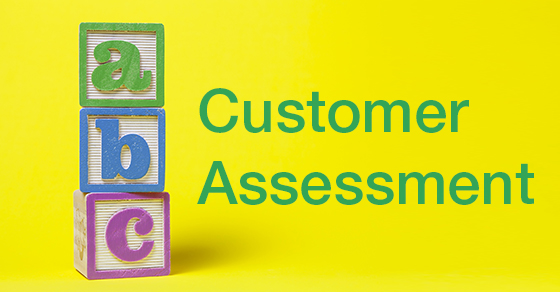When a business is launched, its owners typically welcome every customer through the door with a sigh of relief. But after the company has established itself, those same owners might start looking at their buying constituency a little more critically.
If your business has reached this point, regularly assessing your customer base is indeed an important strategic planning activity. One way to approach it is to simply follow the ABCs.
Assign profitability levels
First, pick a time period — perhaps one, three or five years — and calculate the profitability level of each customer or group of customers based on sales numbers and both direct and indirect costs. (We can help you choose the ideal calculations and run the numbers.)
Once you’ve determined the profitability of each customer or group of customers, divide them into three groups:
1. The A group consists of highly profitable customers whose business you’d like to expand.
2. The B group comprises customers who aren’t extremely profitable, but still positively contribute to your bottom line.
3. The C group includes those customers who are dragging down your profitability. These are the customers you can’t afford to keep.
Act accordingly
With the A customers, your objective should be to grow your business relationship with them. Identify what motivates them to buy, so you can continue to meet their needs. Is it something specific about your products or services? Is it your customer service? Developing a good understanding of this group will help you not only build your relationship with these critical customers, but also target marketing efforts to attract other, similar ones.
Category B customers have value but, just by virtue of sitting in the middle, they can slide either way. There’s a good chance that, with the right mix of product and marketing resources, some of them can be turned into A customers. Determine which ones have the most in common with your best customers; then focus your marketing efforts on them and track the results.
When it comes to the C group, spend a nominal amount of time to see whether any of them might move up the ladder. It’s likely, though, that most of your C customers simply aren’t a good fit for your company. Fortunately, firing your least desirable customers won’t require much effort. Simply curtail your marketing and sales efforts, or stop them entirely, and most will wander off on their own.
Cut costs, bring in more
The thought of purposefully losing customers may seem like a sure recipe for disaster. But doing so can help you cut fruitless costs and bring in more revenue from engaged buyers. Our firm can help you review the pertinent financial data and develop a customer strategy that builds your bottom line.
© 2018





